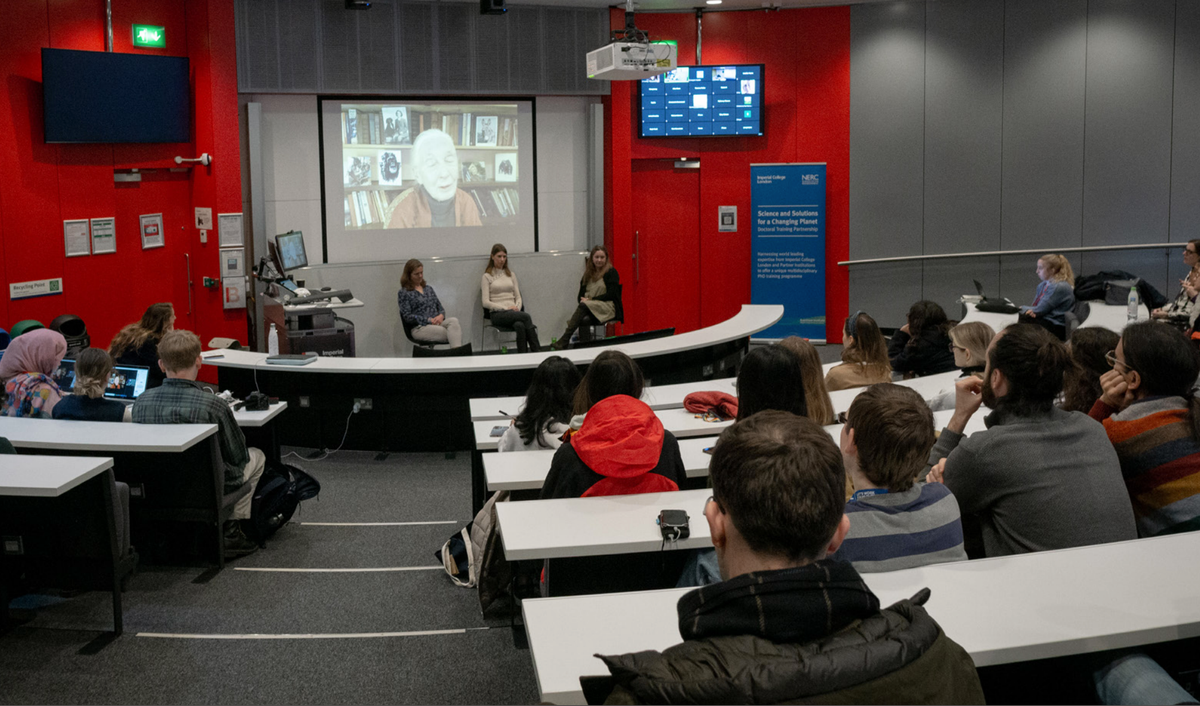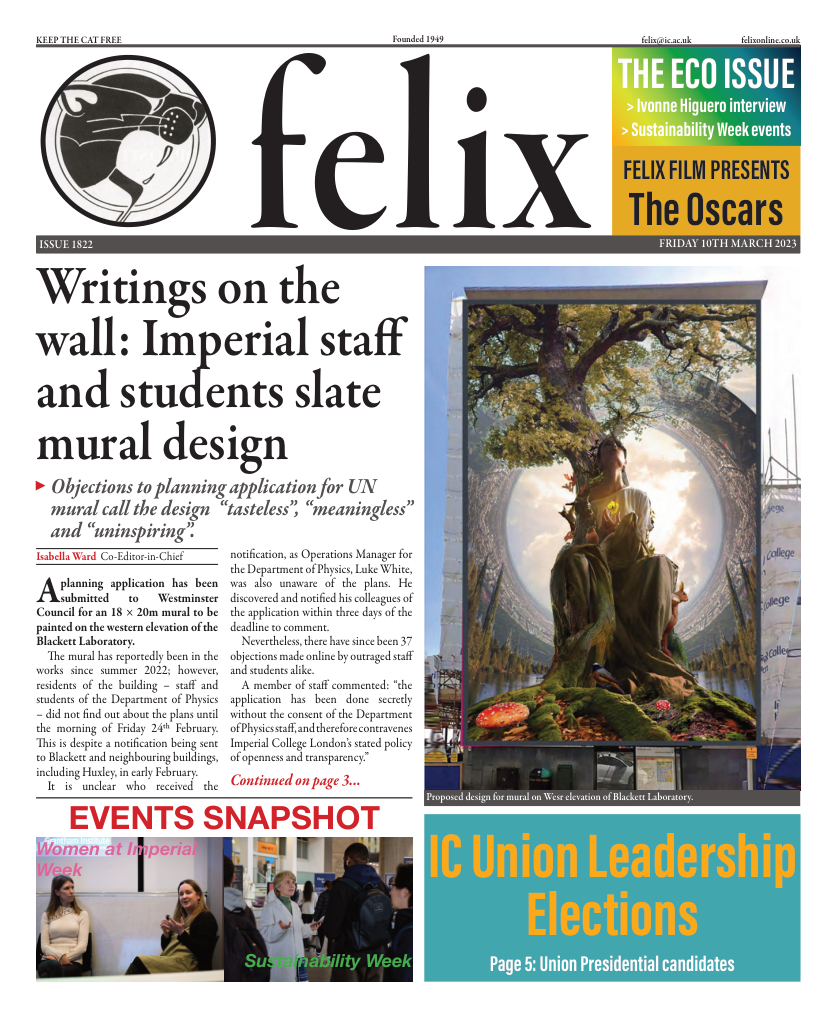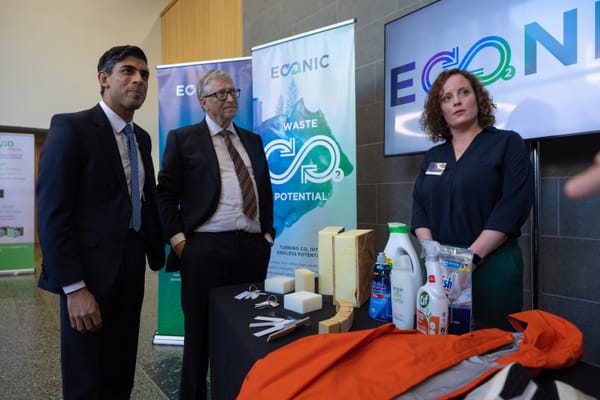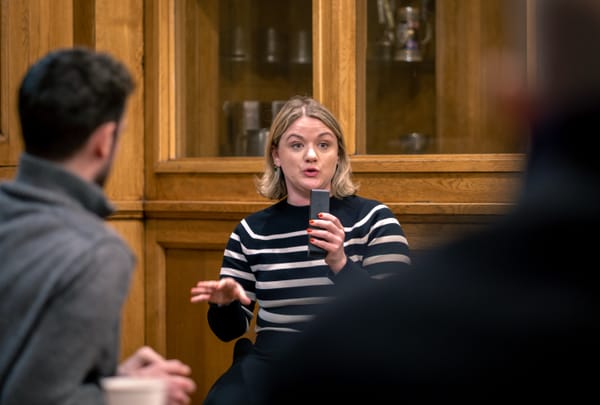Women working in conservation
A bright future awaits women in STEM.

On International Women’s Day (Wednesday 8th March 2023) Felix attended a panel discussion held in the Business School. The event, ‘Women in STEM: Women in Conservation’ was organised and hosted by PhD students from Imperial’s Grantham Institute for Climate Change in association with the Natural Environment Research Council (a branch of UKRI).
The panel began with a video introduction from conservationist Jane Goodall. In the video, she detailed how she came to be involved in wildlife conservation, the journey she went on, and gave the audience - and particularly the women - some advice on doing what you’re passionate about, even in the face of adversity.
Chairing the discussion was ecosystems ecologist Dr Waring, who has studied the uptake of carbon by the land and ecosystems and their potential for climate mitigation. Also on the panel were Professor Heather Koldewey, who works in marine biology to solve conservation problems such as protecting marine areas and plastic pollution in the ocean, and Dr Caroline Howe, who works in environmental social science and policy. Howe seeks to explore the relationship between people and nature, as well as equity and justice issues surrounding usage and access to natural resources.
Patricia Zurita, CEO of Birdlife International and the first woman from a developing country to run a major international conservation organisation, unfortunately couldn’t attend the event in person due to a last-minute emergency. However, she still managed to offer insights by joining online at the end.
Among the topics discussed were how to ensure women can achieve their highest potential in professional settings, and how to best balance scientific work and research with familial and childcare responsibilities. Work-life conflicts seem especially prevalent in conservation careers, where travelling for fieldwork and conferences is often necessary. The advice the panelists shared was not only for women themselves, but also for their male peers, mentors, partners, and managers to note.
The event was concluded with a quick Q&A session. The discussion centred around where there are still gaps in support for women and mothers and on the stereotypes that prevail within the industry; yet there was a was a resounding sense of hope among the speakers that (in Zurita’s words) “there’s a bright future ahead.” She explained “[women are starting] to gain more respect for the extraordinary input we bring to the table”.
Women at Imperial Week wraps up on Friday 10th March (today if you are an eager reader of Felix) with two more events: an online interview with one of the Provost’s Visting Professors, Professor Priscilla Reddy from 12:30- 13:30, and a ‘Women at Imperial’ party at 17:00 in the Queen’s Tower Rooms at South Kensington.
Check felixonline.co.uk next week for more photos and insights from the event.









